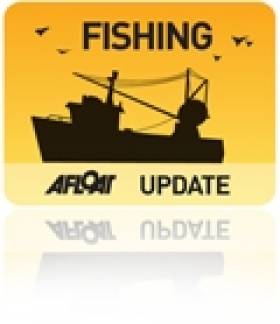Displaying items by tag: Newtonards Magistrates Court
#fishing – A skipper who pleaded guilty to charges including failing to keep a proper look out has been fined more than £5,000.
Malcolm Edmund, who is skipper of the fishing vessel Sapphire Stone was charged following a collision with another fishing vessel Karen causing its loss.
On 22nd January 2014, the fishing vessel Karen was coming to the end of a four hour tow to the south east of the Island of Arran, when she was struck astern by the Sapphire Stone.
Sapphire Stone had just brought its final haul for the day aboard and was bound for Campbeltown for the night.
Skipper of the Karen, John Muir said she went down by the stern so quickly that the crew did not have time to get their lifejackets from the cabin.
The crew managed to launch the life raft but in the choppy seas it overturned and all three found themselves in the water. Mr Muir managed to right the raft and they all got in.
Meanwhile, the Sapphire Stone had managed to get alongside the life raft and recovered all the men safely onboard. She then continued to Campbeltown where they were met by the emergency services.
During an investigation by the Maritime and Coastguard Agency, it transpired that one of the crew employed onboard the Sapphire Stone had not completed the required safety training courses and that Mr Edmund had been issued with an improvement notice the previous September for a similar offence.
Today (8th June), at Newtownards Magistrates Court, Mr Edmund pleaded guilty to three charges - failing to keep a proper lookout, causing the loss of the fishing vessel Karen and breaching the Fishing Vessel Safety Training Regulations.
The judge, his worship Mr Mark Hamill said that the case came down to Mr Edmund not looking where he was going.
He fined him a total of £5,500.
Captain Bill Bennett, Surveyor in Charge of the Belfast Marine Office said: 'This very serious accident caused the loss of a vessel. It could very easily have resulted in loss of life. Skippers are reminded of the need to keep a lookout at all times.'





























































